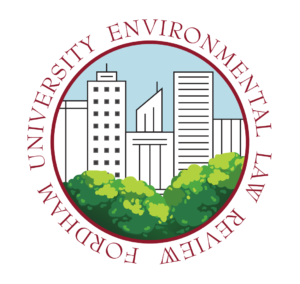Environmental Impacts of Stranded Venezuelan oil tanker

By Anisa Rahaman
Two years ago, filled with 1.3 million barrels of crude oil, the FSO Nabarima set sail from Venezuela to Citgo refineries in Texas and Louisiana. The oil tanker still hasn’t reached its destination. While sailing, U.S. sanctions were imposed on the Venezuelan owned company that produced the oil. The tanker now sits rusting and taking on water in the Gulf of Paria.
A local nonprofit group called Fishermen and Friends of the Sea (FFOS) took to social media to expose the Trinidadian and Venezuelan Government after FFOS contacted them and received no response. In September, the New York Times reported that Nabarima was on the verge of sinking and the disaster would be about five times more than the 1989 Exxon Valdez disaster in Alaska. Thirty years later, several of the local killer whale, seabird, and fish populations are still unable to recover.
Ten days after the NYT article, the Government of Trinidad announced that they were waiting on permission from Venezuela to board the ship in order to assess the danger of a spill. About two weeks ago, the FFOS posted a video of Nabarima tilted at a 25-degree angle. Four days after the video was posted, the Foreign Minister of Trinidad announced that they had received permission to board the vessel. Surprisingly, they reported back and said there is no visible tilt or risk of danger because the vessel is upright.
On October 20th PDVSA sent a rescue ship (Icaro) and began pumping oil off the tanker; however, the Icaro could only contain 25% of Nabarima’s capacity at a time. One of the members who conducted the oil spill analysis in September, Frank Teelucksingh, says that this does not solve the problem. Teelucksingh is a physical oceanographer and Director of Coastal Dynamics, a company that oversees environmental projects across Trinidad and Tobago. He says that booms- floating curtains made of plastic or other materials that serve as barriers to contain oil- could be placed around Nabarima, but this would be Venezuela’s job because this is their vessel.
The U.S. sanctions were put into place to pressure Nicolás Maduro, since the Trump Administration does not recognize him as the legitimate President of Venezuela. The U.S. sanctions prohibit American companies from working with PDVSA and threaten penalties for foreign companies who do. Last week, in an interview with National Geographic a spokesperson from Trinidad’s newspaper The Guardian reported that they were told “The illegitimate Maduro Regime has ignored this issue for some time and we are not able to assess the Maduro Regime’s ability to safely perform the necessary repairs and offload oil.” The opposition in Venezuela has similar concerns as Icaro is very old and ill-equipped for such a high-risk operation. The Maduro Government has also declined help and newer equipment offered by the European Union. On its website, PDVSA discloses that they have logged more than 7,000 oil spills, but there are no dates of when.
Leaving a vessel of this size at risk of spilling violates the Protocol Concerning Cooperation in Combating Oil Spill adopted in the Cartagena Convention. In 1986 the majority of Caribbean countries including the U.S., Trinidad and Venezuela all adopted the Cartagena Convention in order to provide a global framework for international cooperation and mutual assistance to avoid and aid in major oil spill incidents and their prevention. The Protocol states that all parties who have signed on are aware that the islands are at a great risk of damage from oil pollution due to the fragility of their ecosystems. Therefore in the event of an oil spill or the THREAT THEREOF, “prompt and effective action should be taken initially at the national level, to organize and co-ordinate prevention, mitigation, and clean-up activities”. Pollution from ships including any discharge and dumping is also covered under the Protocol.
Initially, FFOS was given misinformation that everything was okay with Nabarima until their Venezuelan partner informed them of the actual state of the vessel. FFOS refuses to name their partner out of fear for their safety. FFOS intends to revisit Nabarima but states that this is now impossible as the ship is now being guarded by Venezuelan authorities. There have been no updates on Nabarima since the end of October. ENI, an Italian oil company that owns equity interests in Nabarima, has now applied to the U.S. government for a sanction to unload the oil but they await the granting of permission as well as permission from PDVSA to repair the vessel.

